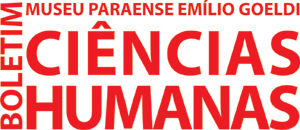Abstract
In this article, we argue that the relationships between Eastern Tukanoan women, manioc and artefacts of garden/kitchen-house, are guided by an ethics of care which, in turn, is based on the vegetal and artefactual composition of the woman’s body, which implies a mutual affectation. By unravelling conceptual and practical aspects with regard to definitions of being a woman and female corporalities, we demonstrate that the shamanic attribution of the name at birth and its complexification at menarche, which involves the ‘embodiment’ in the woman, of manioc seeds and branches and garden/kitchen-house artefacts, compose bodies-thoughts directed to the cultivation and processing of cassava. Those skills are only fully developed when there is an interest on the part of the girl in experimental learning with older women in the gardens and house-kitchens. The transformation of the girl into an Eastern Tukanoan woman, who owns a garden and a kitchen-house, involves mastering and manipulating a collection composed of varieties of manioc sticks and artefacts. Concepts, practices and relationships change in a complex game that involves family composition, biography and social transformations.
Keywords
Women; Manioc sticks; Artefacts; Bodies-thoughts; Ethics of care.; Eastern Tukanoan peoples
